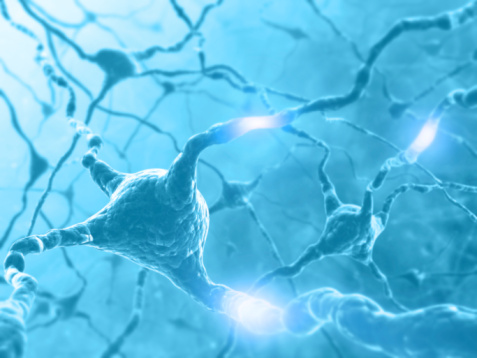 Photo: ThinkStock
Photo: ThinkStock
Did you know your brain talks to your endocrine system and your endocrine system talks back? Your nervous system and your endocrine system are in constant communication.
Many people don't know what's in their endocrine system or what it's good for. You'll be glad to know, it's good for a lot of things. In fact, a nicely running endocrine system is essential for a healthy body and mind. The endocrine system is also called "the other nervous system". Part of that endocrine system actually resides in your brain.
Your hypothalamus is the link that bridges the two networks. It regulates hunger, sleep, sex and thirst, emotion and the stress response. The hypothalamus is called the "master switchboard."
Attached to the hypothalamus is the pituitary gland. The hypothalamus talks to the pituitary and the pituitary sends out hormones, or chemical messengers.
Other major players in your endocrine system are your adrenals, heart, kidneys, pancreas, pineal gland, thymus, thyroid, and ovaries or testes. Each has a unique part to play in the orchestration of a healthy body and mind.
Your endocrine system can be affected by your thoughts and emotions. Let's look at the adrenals.
What happens when you are in danger? Thoughts and emotions quickly veer toward fight-or-flight and your adrenals respond. Very beneficial in a crisis. But when stress is prolonged, the adrenals can be called upon for more than they can produce.
Eventually you may find yourself with both cortisol and adrenaline in short supply. Then the pituitary gland may step up to pinch-hit. But the chemicals it sends out are not cortisol or adrenaline and the fine orchestration of good health begins to hit a sour note.
You are now playing with the dreaded hypothalamic-pituitary-adrenal axis (HPA axis). Bad things happen to good people when this goes out of whack.
So let's try something. Let's visit the avenue of thought and emotion in a positive vein. Let's try to replace as many of these stress-producing thoughts and emotions as possible with ... hope.
If we're ill, let's consider the possibility that we will get better. If we're overwhelmed, let's speculate that there are answers and we'll find them. If we're depressed, instead of seeing emptiness stretching before us, let's envision an open road, waiting to be filled with new and wonderful things.
And let's see if we can't help restore a battered endocrine system that is out of juice.
Sources:
The Nervous System and Endocrine System
http://psychology.about.com/od/biopsychology/p/NervousSystem.htm
What is the Endocrine System?
https://www.emedicinehealth.com/anatomy_of_the_endocrine_system/article_em.htm
Psychoneuroimmunology
http://www.nfnlp.com/psychoneuroimmunology_quinlan.htm
Psychoneuroimmunology: Bi-directional Interactions Between the Brain and the Nervous System
https://serendipstudio.org/exchange/serendipupdate/psychoneuroimmunology-bi-directional-interactions-between-brain-and-nervous-system
Psychosomatic Medicine: Journal of Biobehavioral Medicine
http://www.psychosomaticmedicine.org/cgi/content/full/64/5/847
Visit Jody's website and blog at http://www.ncubator.ca and http://ncubator.ca/blogger





Add a Comment2 Comments
Hi Diane,
I'm also trying to learn about it. Writing about it helps me with that. :-)
It's part of the psychoneuroimmunology mosaic that I have been studying for awhile for my own use. It is helpful for me in dealing with Chronic Fatigue Syndrome. My naturopath agrees that taking some conscious control over my thoughts and emotions wherever I can, seems to be making a positive difference in my ongoing recovery.
It certainly feels better.
September 2, 2009 - 8:23amThis Comment
Jody,
September 2, 2009 - 8:12amThank you for such an informative post! I am trying to learn more about the endocrine system right now. It's such a delicate -- yet powerful -- ballet within the body. I know the links you posted will help anyone looking for information about it. Thanks again.
This Comment